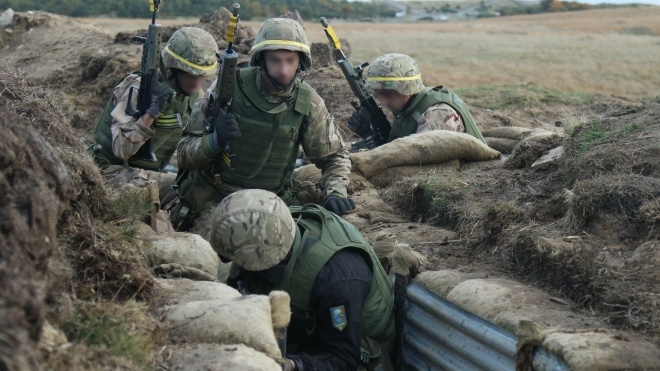A large video report on the mental health of Ukrainians was published by Vice News. It begins with a rave party, the organizer of which claims that it is easier for Ukrainians to relieve stress from the horrors that society has been experiencing for more than eight months. Next, the journalist goes to a stand-up show ― not alone, but with a war veteran who lost a leg not so long ago. He does not understand why the people around him are laughing: it seems to him that they have forgotten about the war. "I collected the bodies of my brothers in parts ― and here, it seems, the people donʼt pay attention to what we are doing there. They donʼt understand how it hurts, how bad it is,” says invited veteran. “And now: the air alarm siren sounded ― but no one moved. They continue to have fun.” This hero assures that he does not need the help of a psychotherapist. And the specialist, military psychologist Andriy Omelchenko, is convinced that the most difficult thing for such fighters is to return to a peaceful life. In part, it has not changed ― but the fighters have become completely different. The Vice News crew also visited psychiatric rehabilitation centers for civilians, including children. Specialists of these institutions are sure that Ukrainians will feel the consequences of the injuries caused by the war for decades ― and it is possible that they will just stack up. Although there is hope that in the end society will become stronger ― because “difficult times grow strong personalities”.
Politico writes about the irony surrounding the flight to Lithuania of Russian media personality Ksenia Sobchak. The publication describes the history of relations between Ksenia Sobchakʼs family and Putin ― in particular, that Putin is Kseniaʼs alleged godfather. For a long time, Sobchak played into the hands of the authorities, and, according to the opposition, ran in the 2018 presidential elections to create the illusion of democracy. The publication writes about the version that it was the KGB that brought Putin closer to Kseniaʼs father, St. Petersburg Mayor Anatoliy Sobchak, because they considered him a too dangerous liberal reformer. In 1997, Sobchak came under investigation in a corruption case, and Putin helped him fly to Paris on a medical evacuation plane. This week, after the search of Sobchakʼs house and the arrest of her associate, Ksenia bought tickets to Dubai and Turkey ― in order, in the end, to get to Lithuania via Belarus with the help of an Israeli passport. The fact that even Putinʼs alleged goddaughter has become a target of the regime means that there are no more untouchables, says pro-Kremlin political scientist Sergei Markov. The newspaper writes that Sobchak is keeping quiet so far ― perhaps hoping to be forgiven and return safely to Moscow.
German cities can barely cope with the number of refugees from Ukraine, writes Deutsche Welle. Its journalists spoke with social workers of the city of Cottbus, which is 90 minutes away from Berlin. They say that they only have space to accommodate refugees out of the available resources. In addition to finances, the city lacks translators and staff, much depends on volunteers. According to official data, there are 1,500 refugees in Cottbus, a third of whom are children who urgently needed to start school. The mayor of Cottbus says that the main problem is the inefficient distribution of the state budget. Currently, the algorithm of costs related to the accommodation and integration of refugees takes into account the population of the federal land and its tax revenues. This algorithm is probably not very effective, because at the beginning of September, 12 of the 16 federal states of Germany reported that their resources had reached the limit. In addition, the article says, there is also an uneven distribution of the burden within the EU: for example, Germany and Poland accepted about a million Ukrainians each, while France received only a little more than 100,000. Probably, the EU and Germany need to review policies and budgets aimed at the adaptation and integration of refugees, because the situation in many countries of the world is unstable and there may be more refugees.
